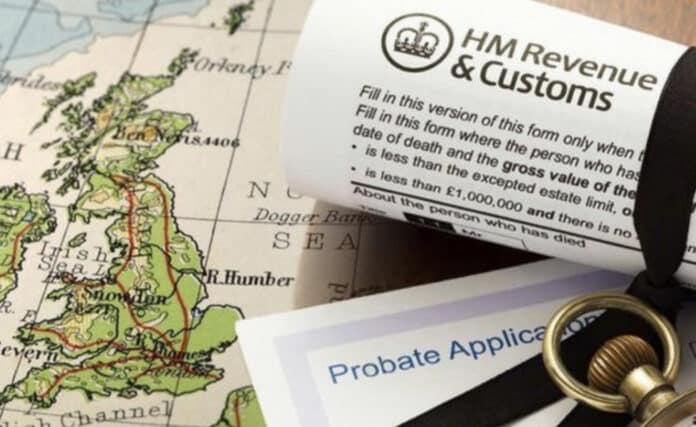As of 2021, the inheritance tax (IHT) rules in the United Kingdom state that IHT is levied on estates with a value above the nil-rate band threshold. The nil-rate band is the amount of an estate that can be passed on without incurring inheritance tax.
The basic nil-rate band was £325,000 per individual. In addition, there was a residence nil-rate band, which was introduced in 2017 to help individuals pass on their family homes. The residence nil-rate band was initially set at £100,000 and was due to increase annually until it reached £175,000 in the tax year 2020-2021.
When these allowances were combined, it meant that an individual could potentially pass on an estate of up to £500,000 (or £1 million for a married couple or civil partners) without incurring inheritance tax.
The percentage of people paying inheritance tax in the UK varied depending on factors such as the value of their estate, the availability of exemptions and reliefs, and the applicable tax rates. Historically, a relatively small percentage of estates (around 4-5%) were subject to inheritance tax.
It’s important to note that tax laws and thresholds can change over time, so for the most up-to-date information on inheritance tax and the percentage of people paying it in the UK, I recommend consulting official government sources or a qualified tax professional.
How Inheritance Tax works: thresholds, rules and allowances (GOV.UK)
Contents
Overview
Inheritance Tax is a tax on the estate (the property, money and possessions) of someone who’s died.
There’s normally no Inheritance Tax to pay if either:
- the value of your estate is below the £325,000 threshold
- you leave everything above the £325,000 threshold to your spouse, civil partner, a charity or a community amateur sports club
You may still need to report the estate’s value even if it’s below the threshold.
If you give away your home to your children (including adopted, foster or stepchildren) or grandchildren your threshold can increase to £500,000.
If you’re married or in a civil partnership and your estate is worth less than your threshold, any unused threshold can be added to your partner’s threshold when you die.
Inheritance Tax rates
The standard Inheritance Tax rate is 40%. It’s only charged on the part of your estate that’s above the threshold.
Example
Your estate is worth £500,000 and your tax-free threshold is £325,000. The Inheritance Tax charged will be 40% of £175,000 (£500,000 minus £325,000).
The estate can pay Inheritance Tax at a reduced rate of 36% on some assets if you leave 10% or more of the ‘net value’ to charity in your will. (The net value is the estate’s total value minus any debts.)
Reliefs and exemptions
Some gifts you give while you’re alive may be taxed after your death. Depending on when you gave the gift, ‘taper relief’ might mean the Inheritance Tax charged on the gift is less than 40%.
Other reliefs, such as Business Relief, allow some assets to be passed on free of Inheritance Tax or with a reduced bill.
Contact the Inheritance Tax and probate helpline about Agricultural Relief if your estate includes a farm or woodland.
Who pays the tax to HMRC
Funds from your estate are used to pay Inheritance Tax to HM Revenue and Customs (HMRC). This is done by the person dealing with the estate (called the ‘executor’, if there’s a will).
Your beneficiaries (the people who inherit your estate) do not normally pay tax on things they inherit. They may have related taxes to pay, for example if they get rental income from a house left to them in a will.
People you give gifts to might have to pay Inheritance Tax, but only if you give away more than £325,000 and die within 7 years.
View a printable version of the whole guide
Join us in helping to bring reality and decency back by SUBSCRIBING to our Youtube channel: https://www.youtube.com/channel/UCQ1Ll1ylCg8U19AhNl-NoTg and SUPPORTING US where you can: Award Winning Independent Citizen Media Needs Your Help. PLEASE SUPPORT US FOR JUST £2 A MONTH https://dorseteye.com/donate/







